Should men cover the bill on a first date with a woman? If you’re a woman hoping to find a lifelong partner, my answer is yes — let him pay. I didn’t always feel that way, but life has taught me why that old custom still matters, and I’ll explain my reasons. This is the second installment in my series about how I stopped playing small — a habit many of us fall into when we’re still shaped by past traumas. We shrink our expectations and avoid discomfort by playing small, and that tendency shows up in how big or small we allow our hopes or boundaries to be on a first date. This applies to anyone, regardless of gender or sexual orientation. Think about how you approach the “who pays” question: how does each choice feel, does it align with what you truly want, or are you retreating into safety? If you enjoy the subject of playing small and aren’t subscribed to my channel yet, consider subscribing so you get notified about each video in this series as they appear — we’re edging toward a million subscribers, and your support really matters. Anyway, for a long time I insisted on paying my own way — on first dates, in relationships, even into my first marriage. I regularly picked up the tab. My upbringing taught me that expecting a man to pay was weak and backward, that it surrendered power to him or implied some obligation in return. Whether I fully believed that or not, I often paid because I felt anxious — sometimes terrified — about the awkwardness that could arise if a man tried to cover the bill and I hadn’t noticed it in time, or if he refused to pay and I felt humiliated. Emotionally, there was so much riding on that moment. On top of that I’d layered a narrative that always paying my share was the morally right thing to do. The deeper worry, however, was that if I insisted on splitting the bill it might mean to him that this wasn’t a date at all — that he didn’t see it that way — and that’s a big signal we send each other. Saying “no, I’ll pay my share” is often taken as a polite way to say, “I don’t have romantic interest; this is just friends.” Many of my early dating experiences weren’t clearly framed as dates, and those moments are really boundary issues. It’s perfectly fine — and sensible — to have a quick clarifying conversation before you meet: “Do you mean this as a date?” or “Is this something you’re treating me to, or should we go Dutch?” (If English isn’t your first language, “going Dutch” means each person pays their own share.) The sooner you raise those questions, the less awkward it will be. You can also choose to wing it and see what unfolds, but here I want to focus on a particular encounter: a first date that’s being considered as a potential start to something serious. For years I believed that insisting on covering my own expenses was modern, fair, and honorable, and that’s a valid choice if that’s what someone prefers. But later I realized that by always offering to pay I was often communicating, unintentionally, that I wasn’t really interested — even when I was. Acting flirtatiously while insisting on splitting the bill sends mixed signals unless you attach words to your intentions. When I hoped a man was romantically inclined but still paid my way, I was playing small — hedging against disappointment, avoiding the risk of being vulnerable. That’s the essence of playing small. I grew up in the 1970s with a mother who urged fierce independence: letting a man pay, she said, was subjugation — like surrendering control. I agreed with her about equality, but equality doesn’t mean everything must be identical in every circumstance. Human interactions, and the chemistry between people, are unique; a first date has a little ritual to it, and I think traditional codes can be meaningful. My mother’s insistence on independence made sense given what she’d lived through in the 1950s: she was born in 1935, married and a mother by 1956, and felt pressured into roles she didn’t like. She warned me not to depend on a man — even at dinner. Ironically, though she meant to protect me, following that strict rule led me to date men who were unreliable; I often paid for meals when my partners couldn’t. That behavior was another form of playing small — avoiding discomfort rather than practicing wise boundaries. This pattern is especially common for people raised by parents who struggled with addiction: we tend to attract partners who are emotionally or practically unavailable. It wasn’t until I was 45 that I discovered the power of accepting a man’s offer to pay. If you’re not in a straight relationship or not aiming for marriage, interpret this principle in the way that fits your situation — these roles show up anywhere romance is in play. Recently I joined an online discussion about whether men should pay on first dates, and I was startled by how transactional many commenters were: “Why should he pay? What’s he getting?” “Is she going to reimburse him later?” The tone was bitter and calculating, and that struck me as dehumanizing. A few voices did support men paying, and I chimed in — explaining that a man paying early on, especially on a first date, functions as a kind of filter for both people. Some argued men should only buy cheap things like coffee so they don’t waste money if nothing develops. That’s pragmatic for people who go on a lot of quick, low-stakes dates via apps — coffee is a sensible low-investment test of chemistry. But if you sincerely want to see whether someone has long-term potential — maybe marriage or family — the stakes are higher. Early dates, and particularly the first one, are opportunities to express through customs what you mean. Obsessing over money and turning everything into a transaction can kill the spark and leave both people disappointed. If you’re the one initiating, do yourself the favor of saying, “I’d like to treat you to dinner,” so your intent is clear — don’t shy away because you fear they’ll say “Oh, this was supposed to be just coffee.” Get possible rejection out of the way quickly rather than finding out after an awkward evening that you wanted different things. If you’re on the receiving end and the inviter doesn’t clarify, it’s okay to ask. Reducing people to commodity-like cost-benefit calculations strips the human out of dating; let dates be a chance to meet another person rather than negotiate an exchange. I last started dating seriously about 17 years ago, before the explosion of swiping apps, and while every generation thinks dating is harder, there’s more dehumanization now from apps and widespread exposure to porn. If you aren’t into hookup culture, you may need to state your boundaries very plainly. Protecting your truth and letting a date unfold with its own rhythm is important because you carry something precious to share — I call it betro, the capacity to be betrothed, like an engagement before the wedding. I imagine it as a glowing golden orb — a rare, valuable thing you don’t want to scatter casually. From experience — I had a chaotic first marriage and misplaced that truth for a long time — it’s essential to keep that light safe and offer it selectively. You don’t give it away after one dinner, and sex alone isn’t the same as offering your deeper commitment; yet sex can mislead people into thinking the truth has been given. That’s why I recommend clear language and boundaries, and a sense of how precious what you have to offer truly is. The first time I deliberately changed my approach and stopped paying on first dates, I resolved not to date men who balked at the idea. That decision shifted the dynamics of subsequent encounters and acted as a screening mechanism. I’ve also used more structured approaches to dating — which I teach in my course — to avoid repeating old mistakes. Trauma can make you want companionship so desperately that you lower your standards and tolerate behavior that hurts you, so structure and boundaries become tools to protect what you want. Don’t be embarrassed by your desires; I wanted marriage and children from very early on and hid that wish because I thought it was uncool. Hiding your desires surrenders control to whoever you’re with, which is another form of playing small. Some of the mean online commenters who sniped at the idea of men paying probably don’t have deep relationships themselves; bitterness often comes from being burned. I didn’t argue with them — it was pointless. Your betro is not something you should give to people who view you as a gold digger or a commodity. In my early dating years I sometimes objectified men, judging them quickly for marriage potential instead of attending first to their humanity and sensitivities. Now, after healing, it’s easier to recognize that people aren’t inherently “gross” just for showing interest; sometimes someone has misread the room, been drunk, or been socially awkward, and that doesn’t make them less of a human being. A date is a chance to listen, learn, and appreciate the person across from you even if you don’t end up romantically involved. My mother’s extreme independence advice never fully acknowledged the stakes of romantic partnership: while independence is valuable, humans typically develop most fully in relation to others — not only romantically, but through community. Romantic relationships, when healthy, aim at building a secure and fruitful life together — sometimes that includes children, sometimes creative or communal endeavors, or joint enterprises. The male-female dynamics that play out in traditional rituals can help reveal whether a match has potential. Early dates give you data about how the dynamic feels, though trauma can make it harder to read signals or spot red flags. All the more reason rituals and clarity matter: winging it and being the “cool girl” or “nice guy” who tolerates everything usually leaves you in harm’s way. Dating should help answer whether this person could go the distance, and that requires time and attention. Hookup culture and three-date rules often don’t provide enough information to make such a judgment. My own family background — alcoholic hippies, fractured relationships — didn’t model steady partnerships, so I made many poor choices and rushed into relationships that didn’t suit me, often ending in heartbreak. The “pay your own way” ethic echoed through my life and contributed to those missteps. My first marriage ended painfully, leaving me a single mother, but today we’re friends and our separation led to healthier lives for everyone. Practices I teach, like the daily practice for nervous-system regulation, helped both of us develop skills to see truth more clearly and to manage reactivity. That marriage was a mistake for me but also the source of two sons I love, so I accept that path. Throughout my life, few men paid my tab; when they did it made me uneasy, and splitting the bill felt like a way to hold onto some control. Those dynamics rarely produced stable relationships for me — many of my early connections moved straight from hanging out to sleeping together without real dating, and my abandonment wounds kept me trapped in relationships I wished I could leave. These cycles persisted until I reconsidered traditional gender roles and saw that, while those roles could be oppressive, they also hold functional value in certain contexts — especially in dating where ritual and chivalry can reveal intention and capacity. If those roles aren’t congruent with who you are, they won’t work for you, and that’s fine. But in my case, aligning with some traditional dynamics made a big difference. I’m not saying everyone should lean that way, but when I allowed myself to be cared for in a particular way, it became a filter for the right partner: someone willing to step up and offer a sheltering, stabilizing energy. That feeling of being able to relax a little — having someone who can take care of you in practical or protective ways when life is hard — is deeply healing. I know how subjective this is — I’ve had tough stretches and had to work hard for money and survival — yet I still appreciate moments when someone takes care of me without needing a tally sheet. That sense of harmony with my husband, where he willingly inhabits a more masculine role at times and I can relax more, set a tone that helped our relationship endure. I’m 62 as I record this, and I mentor many people who grew up neglected or abused, sharing research and lived experience about attachment wounds. Most of my audience struggles with early attachment injuries that make them rush into relationships only to suffer when partners are emotionally unavailable or otherwise incapable of reciprocity. It’s devastating to fall in love with someone who can’t or won’t be present — whether they’re absent emotionally, physically distant, married to someone else, or battling addiction — and those attachment wounds make letting go excruciating. That’s why I recommend that women seriously consider letting men pay during early dates if that approach resonates with them: it can be a way to experience a different dynamic, to observe how someone shows up when given the opportunity. You might wait to date someone who says, “I’d like to take you out,” and see how that feels. Does it clarify the match? Does it help you discern the person’s capacity for commitment and chivalry? In my experience, a man who balks at paying can be signaling lack of interest or an overly transactional mindset. Of course people can fake gestures, but consistent generosity and the willingness to show up matter. For someone who has been through difficulty and may not always be able to protect themselves fully, having a partner who steps in practically is profoundly important and healing. If that sounds like a throwback to the 1950s, I’ll say this: it’s not about nostalgia for a rigid era; it’s about recognizing that certain energies — protection, caretaking, generosity — are still valuable in relationships, especially when children or long-term partnership are involved. I was 45 when I decided to stop paying on first dates, and only one man ever asked me in that straightforward way — he’s my husband now. The dynamic shifted, closing the door on less serious interactions and setting a different tone. We still had struggles, doubts, and moments of hurt — nothing about this is a panacea — but it helped establish a baseline of intent. What has kept me romantically engaged with him over time is his steady expression of that energy, the way he shows up. Ideally that sort of protective, dependable energy is something we receive from caregivers, and for me it was my father, who was taken away when I was nine and later died. So in many of my missteps I was searching for that sense of steady caretaking. You can find it, but it may require patience and clear boundaries. When you keep your inner golden orb safe and get to know someone first, you can find a person who reciprocates your truth and whose presence helps you grow into a fuller version of yourself. Wise counsel I once received was that the right partner will inspire you to become better, not worse. If a relationship downgrades you, leaving you more anxious or diminished, it isn’t right. But when a partnership has the right elements, it’s like three musical notes forming a chord: together you produce a harmony greater than the parts. That’s why so many people continue to long for a deep, healthy love despite heartbreak along the way. If a committed, loving relationship is what your heart wants, don’t deny or diminish that desire. It’s likely part of what you’re meant to have, though attaining it requires significant personal growth and honest change. Failing to change old patterns is the ultimate form of playing small — there are few mistakes with ripple effects as lasting as getting entangled with someone who isn’t good for you. So play big. Honor yourself and what you have to offer. Consider adopting traditional gestures when you date if they support the life you want to build. If you’d like to explore this more, I discuss it in my dating course, which I encourage you to check out. I’ll leave a link to it here, and I’ll see you soon. [Music]
![Should men cover the bill on a first date with a woman? If you're a woman hoping to find a lifelong partner, my answer is yes — let him pay. I didn't always feel that way, but life has taught me why that old custom still matters, and I'll explain my reasons. This is the second installment in my series about how I stopped playing small — a habit many of us fall into when we're still shaped by past traumas. We shrink our expectations and avoid discomfort by playing small, and that tendency shows up in how big or small we allow our hopes or boundaries to be on a first date. This applies to anyone, regardless of gender or sexual orientation. Think about how you approach the “who pays” question: how does each choice feel, does it align with what you truly want, or are you retreating into safety? If you enjoy the subject of playing small and aren’t subscribed to my channel yet, consider subscribing so you get notified about each video in this series as they appear — we’re edging toward a million subscribers, and your support really matters. Anyway, for a long time I insisted on paying my own way — on first dates, in relationships, even into my first marriage. I regularly picked up the tab. My upbringing taught me that expecting a man to pay was weak and backward, that it surrendered power to him or implied some obligation in return. Whether I fully believed that or not, I often paid because I felt anxious — sometimes terrified — about the awkwardness that could arise if a man tried to cover the bill and I hadn’t noticed it in time, or if he refused to pay and I felt humiliated. Emotionally, there was so much riding on that moment. On top of that I’d layered a narrative that always paying my share was the morally right thing to do. The deeper worry, however, was that if I insisted on splitting the bill it might mean to him that this wasn’t a date at all — that he didn’t see it that way — and that’s a big signal we send each other. Saying “no, I’ll pay my share” is often taken as a polite way to say, “I don’t have romantic interest; this is just friends.” Many of my early dating experiences weren’t clearly framed as dates, and those moments are really boundary issues. It’s perfectly fine — and sensible — to have a quick clarifying conversation before you meet: “Do you mean this as a date?” or “Is this something you’re treating me to, or should we go Dutch?” (If English isn’t your first language, “going Dutch” means each person pays their own share.) The sooner you raise those questions, the less awkward it will be. You can also choose to wing it and see what unfolds, but here I want to focus on a particular encounter: a first date that’s being considered as a potential start to something serious. For years I believed that insisting on covering my own expenses was modern, fair, and honorable, and that’s a valid choice if that’s what someone prefers. But later I realized that by always offering to pay I was often communicating, unintentionally, that I wasn’t really interested — even when I was. Acting flirtatiously while insisting on splitting the bill sends mixed signals unless you attach words to your intentions. When I hoped a man was romantically inclined but still paid my way, I was playing small — hedging against disappointment, avoiding the risk of being vulnerable. That’s the essence of playing small. I grew up in the 1970s with a mother who urged fierce independence: letting a man pay, she said, was subjugation — like surrendering control. I agreed with her about equality, but equality doesn’t mean everything must be identical in every circumstance. Human interactions, and the chemistry between people, are unique; a first date has a little ritual to it, and I think traditional codes can be meaningful. My mother’s insistence on independence made sense given what she’d lived through in the 1950s: she was born in 1935, married and a mother by 1956, and felt pressured into roles she didn’t like. She warned me not to depend on a man — even at dinner. Ironically, though she meant to protect me, following that strict rule led me to date men who were unreliable; I often paid for meals when my partners couldn’t. That behavior was another form of playing small — avoiding discomfort rather than practicing wise boundaries. This pattern is especially common for people raised by parents who struggled with addiction: we tend to attract partners who are emotionally or practically unavailable. It wasn’t until I was 45 that I discovered the power of accepting a man’s offer to pay. If you’re not in a straight relationship or not aiming for marriage, interpret this principle in the way that fits your situation — these roles show up anywhere romance is in play. Recently I joined an online discussion about whether men should pay on first dates, and I was startled by how transactional many commenters were: “Why should he pay? What’s he getting?” “Is she going to reimburse him later?” The tone was bitter and calculating, and that struck me as dehumanizing. A few voices did support men paying, and I chimed in — explaining that a man paying early on, especially on a first date, functions as a kind of filter for both people. Some argued men should only buy cheap things like coffee so they don’t waste money if nothing develops. That’s pragmatic for people who go on a lot of quick, low-stakes dates via apps — coffee is a sensible low-investment test of chemistry. But if you sincerely want to see whether someone has long-term potential — maybe marriage or family — the stakes are higher. Early dates, and particularly the first one, are opportunities to express through customs what you mean. Obsessing over money and turning everything into a transaction can kill the spark and leave both people disappointed. If you’re the one initiating, do yourself the favor of saying, “I’d like to treat you to dinner,” so your intent is clear — don’t shy away because you fear they’ll say “Oh, this was supposed to be just coffee.” Get possible rejection out of the way quickly rather than finding out after an awkward evening that you wanted different things. If you’re on the receiving end and the inviter doesn’t clarify, it’s okay to ask. Reducing people to commodity-like cost-benefit calculations strips the human out of dating; let dates be a chance to meet another person rather than negotiate an exchange. I last started dating seriously about 17 years ago, before the explosion of swiping apps, and while every generation thinks dating is harder, there’s more dehumanization now from apps and widespread exposure to porn. If you aren’t into hookup culture, you may need to state your boundaries very plainly. Protecting your truth and letting a date unfold with its own rhythm is important because you carry something precious to share — I call it betro, the capacity to be betrothed, like an engagement before the wedding. I imagine it as a glowing golden orb — a rare, valuable thing you don’t want to scatter casually. From experience — I had a chaotic first marriage and misplaced that truth for a long time — it’s essential to keep that light safe and offer it selectively. You don’t give it away after one dinner, and sex alone isn’t the same as offering your deeper commitment; yet sex can mislead people into thinking the truth has been given. That’s why I recommend clear language and boundaries, and a sense of how precious what you have to offer truly is. The first time I deliberately changed my approach and stopped paying on first dates, I resolved not to date men who balked at the idea. That decision shifted the dynamics of subsequent encounters and acted as a screening mechanism. I’ve also used more structured approaches to dating — which I teach in my course — to avoid repeating old mistakes. Trauma can make you want companionship so desperately that you lower your standards and tolerate behavior that hurts you, so structure and boundaries become tools to protect what you want. Don’t be embarrassed by your desires; I wanted marriage and children from very early on and hid that wish because I thought it was uncool. Hiding your desires surrenders control to whoever you’re with, which is another form of playing small. Some of the mean online commenters who sniped at the idea of men paying probably don’t have deep relationships themselves; bitterness often comes from being burned. I didn’t argue with them — it was pointless. Your betro is not something you should give to people who view you as a gold digger or a commodity. In my early dating years I sometimes objectified men, judging them quickly for marriage potential instead of attending first to their humanity and sensitivities. Now, after healing, it’s easier to recognize that people aren’t inherently “gross” just for showing interest; sometimes someone has misread the room, been drunk, or been socially awkward, and that doesn’t make them less of a human being. A date is a chance to listen, learn, and appreciate the person across from you even if you don’t end up romantically involved. My mother’s extreme independence advice never fully acknowledged the stakes of romantic partnership: while independence is valuable, humans typically develop most fully in relation to others — not only romantically, but through community. Romantic relationships, when healthy, aim at building a secure and fruitful life together — sometimes that includes children, sometimes creative or communal endeavors, or joint enterprises. The male-female dynamics that play out in traditional rituals can help reveal whether a match has potential. Early dates give you data about how the dynamic feels, though trauma can make it harder to read signals or spot red flags. All the more reason rituals and clarity matter: winging it and being the “cool girl” or “nice guy” who tolerates everything usually leaves you in harm’s way. Dating should help answer whether this person could go the distance, and that requires time and attention. Hookup culture and three-date rules often don’t provide enough information to make such a judgment. My own family background — alcoholic hippies, fractured relationships — didn’t model steady partnerships, so I made many poor choices and rushed into relationships that didn’t suit me, often ending in heartbreak. The “pay your own way” ethic echoed through my life and contributed to those missteps. My first marriage ended painfully, leaving me a single mother, but today we’re friends and our separation led to healthier lives for everyone. Practices I teach, like the daily practice for nervous-system regulation, helped both of us develop skills to see truth more clearly and to manage reactivity. That marriage was a mistake for me but also the source of two sons I love, so I accept that path. Throughout my life, few men paid my tab; when they did it made me uneasy, and splitting the bill felt like a way to hold onto some control. Those dynamics rarely produced stable relationships for me — many of my early connections moved straight from hanging out to sleeping together without real dating, and my abandonment wounds kept me trapped in relationships I wished I could leave. These cycles persisted until I reconsidered traditional gender roles and saw that, while those roles could be oppressive, they also hold functional value in certain contexts — especially in dating where ritual and chivalry can reveal intention and capacity. If those roles aren’t congruent with who you are, they won’t work for you, and that’s fine. But in my case, aligning with some traditional dynamics made a big difference. I’m not saying everyone should lean that way, but when I allowed myself to be cared for in a particular way, it became a filter for the right partner: someone willing to step up and offer a sheltering, stabilizing energy. That feeling of being able to relax a little — having someone who can take care of you in practical or protective ways when life is hard — is deeply healing. I know how subjective this is — I’ve had tough stretches and had to work hard for money and survival — yet I still appreciate moments when someone takes care of me without needing a tally sheet. That sense of harmony with my husband, where he willingly inhabits a more masculine role at times and I can relax more, set a tone that helped our relationship endure. I’m 62 as I record this, and I mentor many people who grew up neglected or abused, sharing research and lived experience about attachment wounds. Most of my audience struggles with early attachment injuries that make them rush into relationships only to suffer when partners are emotionally unavailable or otherwise incapable of reciprocity. It’s devastating to fall in love with someone who can’t or won’t be present — whether they’re absent emotionally, physically distant, married to someone else, or battling addiction — and those attachment wounds make letting go excruciating. That’s why I recommend that women seriously consider letting men pay during early dates if that approach resonates with them: it can be a way to experience a different dynamic, to observe how someone shows up when given the opportunity. You might wait to date someone who says, “I’d like to take you out,” and see how that feels. Does it clarify the match? Does it help you discern the person’s capacity for commitment and chivalry? In my experience, a man who balks at paying can be signaling lack of interest or an overly transactional mindset. Of course people can fake gestures, but consistent generosity and the willingness to show up matter. For someone who has been through difficulty and may not always be able to protect themselves fully, having a partner who steps in practically is profoundly important and healing. If that sounds like a throwback to the 1950s, I’ll say this: it’s not about nostalgia for a rigid era; it’s about recognizing that certain energies — protection, caretaking, generosity — are still valuable in relationships, especially when children or long-term partnership are involved. I was 45 when I decided to stop paying on first dates, and only one man ever asked me in that straightforward way — he’s my husband now. The dynamic shifted, closing the door on less serious interactions and setting a different tone. We still had struggles, doubts, and moments of hurt — nothing about this is a panacea — but it helped establish a baseline of intent. What has kept me romantically engaged with him over time is his steady expression of that energy, the way he shows up. Ideally that sort of protective, dependable energy is something we receive from caregivers, and for me it was my father, who was taken away when I was nine and later died. So in many of my missteps I was searching for that sense of steady caretaking. You can find it, but it may require patience and clear boundaries. When you keep your inner golden orb safe and get to know someone first, you can find a person who reciprocates your truth and whose presence helps you grow into a fuller version of yourself. Wise counsel I once received was that the right partner will inspire you to become better, not worse. If a relationship downgrades you, leaving you more anxious or diminished, it isn’t right. But when a partnership has the right elements, it’s like three musical notes forming a chord: together you produce a harmony greater than the parts. That’s why so many people continue to long for a deep, healthy love despite heartbreak along the way. If a committed, loving relationship is what your heart wants, don’t deny or diminish that desire. It’s likely part of what you’re meant to have, though attaining it requires significant personal growth and honest change. Failing to change old patterns is the ultimate form of playing small — there are few mistakes with ripple effects as lasting as getting entangled with someone who isn’t good for you. So play big. Honor yourself and what you have to offer. Consider adopting traditional gestures when you date if they support the life you want to build. If you’d like to explore this more, I discuss it in my dating course, which I encourage you to check out. I’ll leave a link to it here, and I’ll see you soon. [Music]](/wp-content/images/when-insisting-on-fairness-can-be-another-way-to-play-small-7ur2to32.jpg)


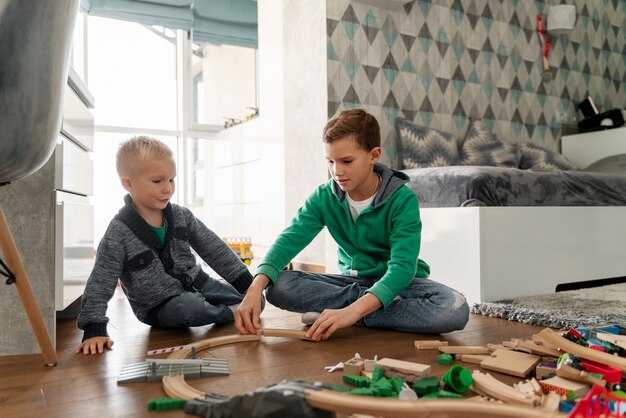 When Insisting on "Fairness" Can Be Another Way to PLAY SMALL">
When Insisting on "Fairness" Can Be Another Way to PLAY SMALL">

 How to Build a Loving Relationship with an Avoidant Without Getting Hurt">
How to Build a Loving Relationship with an Avoidant Without Getting Hurt">
 STOP Trying to Make People Respect You & DO THIS Instead">
STOP Trying to Make People Respect You & DO THIS Instead">
 The Shocking Truth Behind Why Avoidants Disrespect You (And Test Your Love)">
The Shocking Truth Behind Why Avoidants Disrespect You (And Test Your Love)">
 Here’s My Story on How I Learned to Help Others Heal Their Trauma Symptoms">
Here’s My Story on How I Learned to Help Others Heal Their Trauma Symptoms">
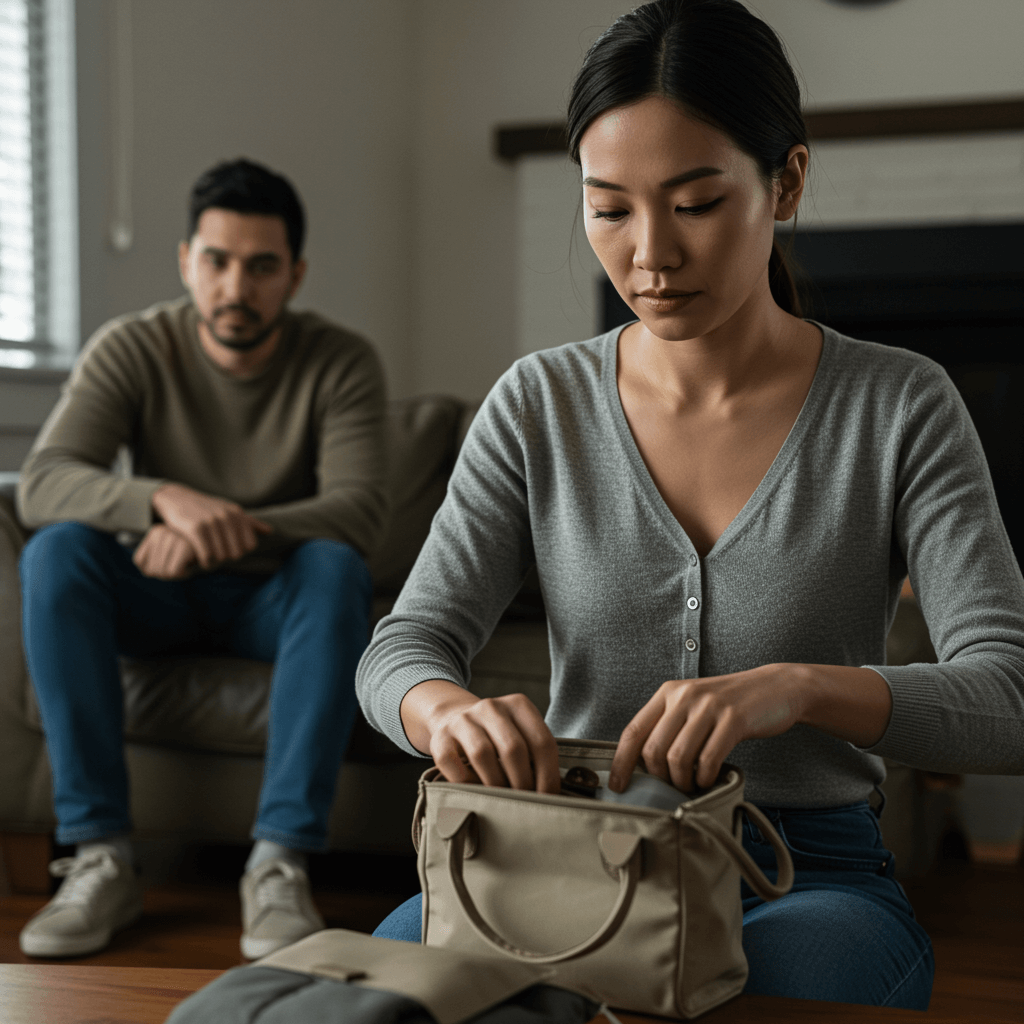
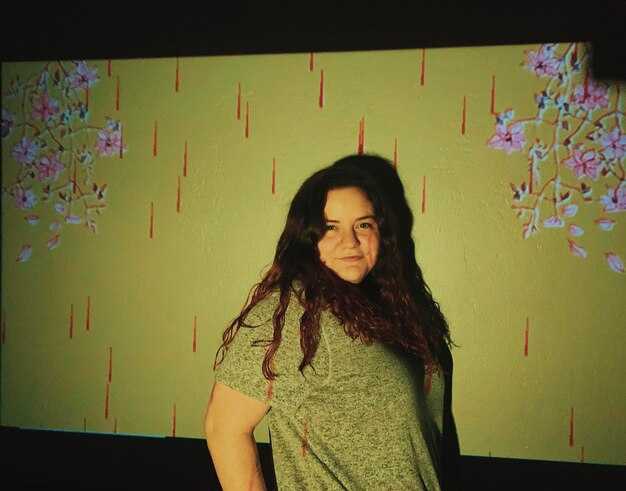 Stand Up For What Your Soul Knows You Need (4-Video Compilation)">
Stand Up For What Your Soul Knows You Need (4-Video Compilation)">
 Relationship Success in Just ONE Question! Will you Ask It?">
Relationship Success in Just ONE Question! Will you Ask It?">
 DYSREGULATION: This Core Trauma Symptom COULD Be Why Your Healing Is Stuck">
DYSREGULATION: This Core Trauma Symptom COULD Be Why Your Healing Is Stuck">
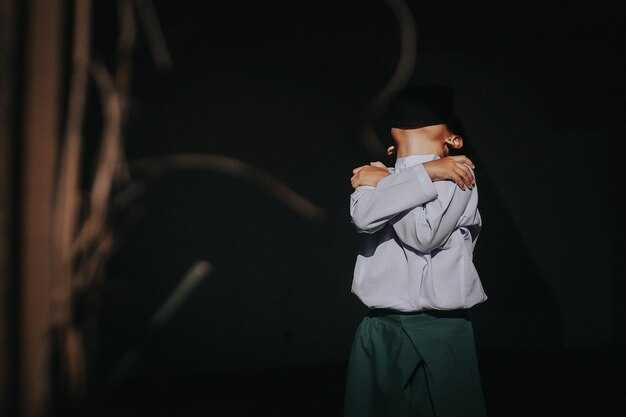 The Hidden Shift That Forces An Avoidant To Finally Apologize For Hurting You">
The Hidden Shift That Forces An Avoidant To Finally Apologize For Hurting You">
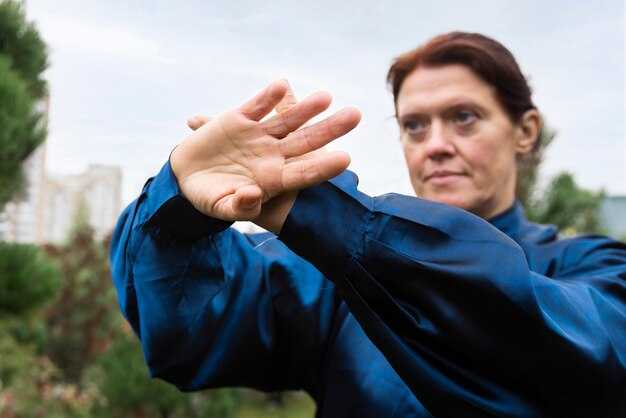 Here’s why Boundaries are ESSENTIAL!">
Here’s why Boundaries are ESSENTIAL!">